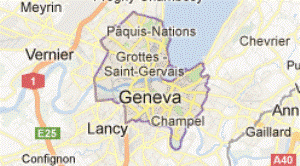ECONOMIC DEMOCRACY » EUROPE » NYT OP-EDS » STRUCTURAL ANALYSIS
On Europe’s Failure
August 29, 2012 · 0 Comments

By Costas Panayotakis:
In times of deep economic crisis, there is always a temptation to resort to economistic accounts that ignore the importance of non-economic factors in understanding the complex way in which crises unfold. To resist this temptation, an analyst of social and economic reality has to trace the subtle interconnections and interactions between economic and non-economic factors, while avoiding the opposite temptation of understating the economic dimensions of the crisis in favor of other cultural or political dynamics and processes. In attempting to answer the question of whether Europe has failed, Nicholas Sambanis’ recent op-ed piece in The New York Times illustrates the pitfalls of succumbing to this latter temptation. (i)
The piece bases its thesis that “[t]he euro crisis is at heart an ethnic conflict” on an interpretation of the European project which accepts the project’s mythology at face value while carefully avoiding to take into account the class processes, struggles and projects that are integral to the way “Europe” as an idea and institutional reality has evolved over time. For Sambanis “[t]he European Union was a political concept, designed to tame a bellicose Germany” and pacify a war-torn continent. Suggesting that the European project never captured the imagination of the European masses, Sambanis argues that European elites could more easily push for this project “as long as Europe prospered and had high international status.” As the position of Europe in the global economic and geopolitical landscape has suffered, Sambanis argues, the already tenuous European identity is likely to retreat while people’s national identities reassert themselves with a vengeance.
Hence, the growing schism between the European North and the European South. In the absence of a sense of solidarity rooted in a strong European identity, Sambanis argues that hostility between the North and South will rise, as exemplified by a deteriorating German-Greek relationship in which “Germans tell the Greeks how to live; the Greeks reply by calling them Nazis.” Sambanis concludes that the future of Europe will depend on whether cosmopolitan outlooks can prevail over those parochial voices in the European North that are stridently opposed to any further help for countries of the European South in crisis, such as Greece. For cosmopolitanism to prevail, however, “Germans must have a frank public discussion about what it means to be European, how good European citizens should behave toward other Europeans and why a strong Europe is good for German interests in a world dominated by the United States, China and emerging powers like India and Brazil.”
The absence of any class analysis, therefore, leads Sambanis to treat nations as monolithic entities, thus obscuring the ways in which references to so-called ‘German’ or ‘national’ interests more often than not serve as the ideological means through which the interests of political and economic elites become projected as the interests of the nation. Having postulated the existence of German national interests, Sambanis suggests that these interests coincide with the very European project that European elites have long pushed on their unwilling publics. These elites are the cosmopolitan heroes who have to prevail, if the civilizing influence of the European project is to be preserved.
This identification of European capitalist elites with the general interest obscures the ways in which the European project has long played a role in the defense and restructuring of capitalist social relations within the European continent. In the Cold War context Europe was as much about responding to the ‘communist threat’ as it was about taming Germany, while in more recent years Europe has been one of the vehicles through which the neoliberal restructuring of European societies has taken place.
Now that the European crisis has revealed the contradictions of this neoliberal model, European capitalist elites have responded with austerity and an attempt to use the crisis as an opportunity to entrench the neoliberal model even further. Far from representing a repudiation by the masses of the benign cosmopolitanism of the capitalist elites, the demonization of Greece and the European South imposes nationalist and culturalist frames on the crisis that are much more consistent with the interest of these elites than a frame that also includes consideration of class divisions.
After all, consideration of class would reveal that, far from being an all round success, even countries like Germany are faced with the growth of economic inequality and poverty that is characteristic of the neoliberal era. Foregrounding class divisions in Europe would also problematize Sambanis’ overly simple description of parochialism as the only alternative to the enlightened cosmopolitanism of the capitalist elites. It would do so by introducing a third alternative, that of a fundamentally different European project tailored to the needs and aspirations of workers and ordinary citizens within Europe rather than the interests of industrial and financial capital.
And taking class divisions into account would also avoid a paradox inherent in Sambanis’ statement that “Germans tell the Greeks how to live; the Greeks reply by calling them Nazis.” When ethnic identity becomes the only variable in one’s analysis, one ends up with an undifferentiated treatment of Greeks and Germans, couching the social struggles taking place in Europe today in purely national terms and fuelling the very parochialism that Sambanis supposedly wants to dispel. The caricature of Greeks as an undifferentiated and irrational mass that calls Germans Nazis not only ignores the rise within Greece of a left that privileges a class-based rather than a nationalist interpretation of the crisis. It also works against the project of ending the demonization of the South that Sambanis claims to support. Thus, Sambanis’ refusal to integrate class into his analysis prevents him from recognizing that European people’s best hope for a future free of extreme nationalism depends not on the continued hegemony of ‘cosmopolitan’ capitalist elites but on their challenge.
And, most astonishingly, Sambanis is completely silent about the ways in which the continued hegemony of these elites increasingly depends on and fans extreme and fascistic versions of nationalism. Greece is a good example of this, since, the most worrisome form of nationalism in that country, is not the supposed perception of Germans as Nazis but the growth of actual neo-Nazi political formations that on a daily basis assault and kill immigrants. Meanwhile, this behavior is legitimized by a pro-austerity government in Greece, which, far from being anti-German, portrays the brutal austerity program prescribed by Germany and the Europeans as the only means of national salvation. Indeed, at the same time that it continues to enforce economic policies that have thrown the majority of Greeks into misery, the Greek government uses the police to round up thousands of immigrants, most of whom are in Greece legally, and has even declared that immigration represents a more major crisis than the deep economic depression that has brought the country to its knees! The fact that Sambanis’ piece does not even mention this diversionary use by the Greek government of the immigration issue is ample illustration of the poverty of accounts of ethnic identity that refuse to acknowledge the intricate and complex connections between the formation of ethnic identities, on the one hand, and class dynamics, on the other.
Costas Panayotakis is Associate Professor of Sociology at the New York City College of Technology of the City University of New York and the author of Remaking Scarcity: From Capitalist Inefficiency to Economic Democracy.
Notes:
(i) See Nicholas Sambanis, “Has ‘Europe’ Failed?,” http://www.nytimes.com/2012/08/27/opinion/has-europe-failed.html?_r=1 .
By admin










Sorry, comments are closed on this post.